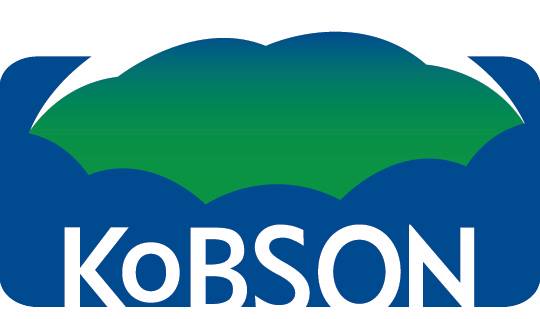DOI: 10.5937/jaes0-28127
This is an open access article distributed under the CC BY 4.0

Volume 18 article 749 pages: 705 - 712
The problem of launching a rocket into the Earth’s orbit has already been solved using the regularization method in
previous studies. But the regularization method remains relevant for application to solving integral equations of the
first kind, which determine the components of speed and acceleration. The problem of optimal control of propellant
consumption during the insertion of a rocket into a circle orbit of the Earth is solved using regularized solutions of
integral equations of the first kind which are solutions of corresponding Euler equations on discrete-time net. The
influence of the regularization parameter and some additional parameters on precision of discredited problem is investigated.
Calculations are carried out for existing chemical rocket engine and promising plasmic one. Considered
algorithm is summed up easily to problem of suborbital flights by setting desired coordinate system and modifying
motion equations. Conclusions were drawn about the required speed for the lowest fuel consumption, as well as
about the problem for a single-stage rocket. Thus, the development of a plasma rocket engine with an exhaust velocity
is more than ten times higher than that of a chemical one.
This research was supported by the Ministry of science
and high education of the Russian Federation in the
frame of the basic part of government-supported researches
(project No 9.9074.2017/БЧ).
1. Alekseyev, V.M., Tikhomirov, V.M., Fomin, S.V. (2018). Optimal management. Fizmatlit, Moscow.
2. Azhmyakov, V. (2018). A relaxation-based approach to optimal control of hybrid and switched systems. Print Book and E-Book, Moscow.
3. Denysiuk, R., Rodrigues, H.S., Monteiro, M.T.T., Costa, L., Santo, I.E., Torres, D.F.M. (2015). Multi¬objective approach to optimal control for a dengue transmission model. Statistics, Optimization and In¬formation Computing, vol. 3, no. 3, 206-220, https:// doi.org/10.19139/soic.v3i3.144.
4. Kahina, L., Spiteri, P., Demim, F., Mohamed, A., Nemra, A., Messine, F. (2018). Application optimal control for a problem aircraft flight. Journal of Engineering Science and Technology Review, vol. 11, no. 1, 156-164, https://doi.org/10.25103/jestr.111.19.
5. Konstantinov, M.S., Petukhov, V.G., Thein, M. (2019). Optimization of trajectories of heliocentric flights. MAI Publishing, Moscow.
6. Mengu, D., Kumar, R. (2018). Development of EVA-SEBS based wax fuel for hybrid rocket applications. Acta Astronautica, vol. 152, 325-334, https://doi. org/10.1016/j.actaastro.2018.08.034.
7. Mia, M. (2018). Mathematical modeling and optimization of MQL assisted end milling characteristics based on RSM and Taguchi method. Journal of the International Measurement Confederation, vol. 121, 249-260, https://doi.org/10.1016/j.measure¬ment.2018.02.017.
8. Milyutin, A.A. (2001). The maximum principle in the general problem of optimal control. Fizmatlit, Moscow.
9. Milyutin, A.A., Dmitruk, A.V., Osmolovskiy, N.P. (2004). The maximum principle in optimal control. Publishing House of the Center for Applied Re¬search at the Faculty of Mechanics and Mathematics of Moscow State University, Moscow.
10. Pontryagin, L.S., Boltyanskiy, V.G., Gamkrelidze, R.V., Mishchenko, E.F. (1976). The mathematical theory of optimal processes. Nauka, Moscow.
11. Oukacha, O. (2016). Direct method for the optimization of optimal control problems. University of Tizi-Ouzou, Algeria.
12. Efremov, A.P. (2004). Quaternions: Algebra, geometry, and physical theories. Hypercomplex Numbers in Geometry and Physics, vol. 1, no. 1, 111-127.
13. Petukhov, V.G. (2012). The continuation method for optimizing low-thrust interplanetary trajectories. Space Research, vol. 50, no. 3, 258-270.
14. Perez-Roca, S., Marzat, J., Piet-Lahanier, H., Lan¬glois, N., Farago, F., Galeotta, M., Le Gonidec, S. (2019). A survey of automatic control methods for liquid-propellant rocket engines. Progress in Aerospace Sciences, vol. 107, 63-84, https://doi.org/10.1016/j. paerosci.2019.03.002.
15. Veale, K., Adali, S., Pitot, J., Brooks, M. (2017). A review of the performance and structural considerations of paraffin wax hybrid rocket fuels with additives. Acta Astronautica, vol. 141, 196-208, https:// doi.org/10.1016/j.actaastro.2017.10.012.
16. Trelat, E. (2005). Optimal control: Theory and applications. Concrete Mathematics Collection, Paris.
17. Petukhov, V.G. (2004). Optimization of multi-turn flights between non-coplanar elliptical orbits. Space Exploration, vol. 42, no. 3, 260-279.
18. Tikhonov, A.N., Arsenin, V.Ya. (1977). Solutions of ill-posed problems. V.H. Winston & Sons, a Division of Scripta Technica, Washington.
19. Lazarenko, M.M., Alekseev, A.N., Alekseev, S.A., Zabashta, Yu.F., Grabovskii, Yu.E., Hnatiuk, K.I., Dinzhos, R.V., Simeonov, M.S., Kolesnichenko, V.G., Ushcatse, M.V., Bulavin, L.A. (2019). Nanocrystallite–liquid phase transition in porous matrices with chemically functionalized surfaces. Physical Chemistry Chemical Physics, vol. 21, 24674-24683.
20. Goloshchapova, L.V., Plaskova, N.S., Prodanova, N.A., Yusupova, S.Y., Pozdeeva, S.N. (2018). Analytical review of risks of loss of profits in cargo transportation. International Journal of Mechanical Engineering and Technology, vol. 9, no. 11, 1897-1902.
21. Dyusembaev, A.E., Grishko, M.V. (2017). Conditions of the correctness for the algebra of estimates calculation algorithms with μ-operators over a set of binary-data recognition problems. Pattern Recognition and Image Analysis, vol. 27, no. 2, 166-174.
22. Vlasov, A.I., Grigoriev, P.V., Krivoshein, A.I., Shakhnov, V.A., Filin, S.S., Migalin, V.S. (2018). Smart management of technologies: Predictive maintenance of industrial equipment using wireless sensor net¬works. Entrepreneurship and Sustainability Issues, vol. 6, no. 2, 489-502.
23. Ivin, V.I., Ryndin, V.V. (1976). Unsteady flow in branched ducts of inlet pipes of internal combustion engines. Izv Vyssh Uchebn Zaved Mashinostr, vol. 9, 100-105.
24. Dinzhos, R., Lysenkov, E., Fialko, N. (2015). Simulation of thermal conductivuty of polymer composites based on poly (methyl methacrylate) with different types of fillers. Eastern-European Journal of Enterprise Technologies, vol. 6, no. 11, 21-24.
25. Dyusembaev, A.E., Grishko, M.V. (2018). On correctness conditions for algebra of recognition algorithms with μ-operators over pattern problems with binary data. Doklady Mathematics, vol. 98, no. 2, 421-424.
26. Ryndin, V.V. (1980). Mathematical modeling of the process of filling an engine through an inlet manifold. Izvestia Vyssih Ucebnyh Zavedenij. Masinostroenie, vol. 2, 71-75.
27. Skvortsov, A.A., Kalenkov, S.G., Koryachko. M.V. (2014). Phase transformations in metallization systems under conditions of nonstationary thermal ac¬tion. Technical Physics Letters, vol. 40, no. 9, 787- 790.
28. Khripach, N., Lezhnev, L., Tatarnikov, A., Stukolkin, R., Skvortsov, A. (2018). Turbo-generators in energy recovery systems. International Journal of Mechanical Engineering and Technology, vol. 9, no. 6, 1009- 1018.







